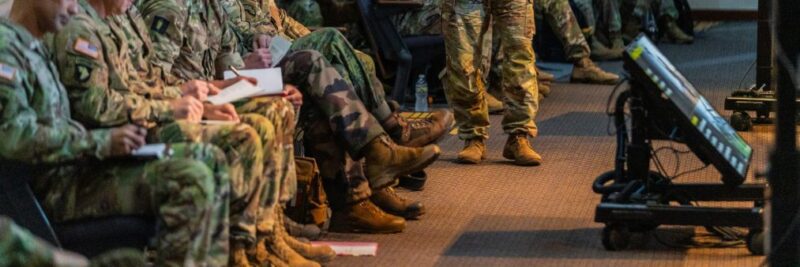Hegseth Replaces Army General
The sudden replacement of Army Vice Chief of Staff General James Mingus by Lt. Gen. Christopher LaNeve is more than just a high-level personnel shuffle — it's a sharp, unmistakable signal from Secretary of War Pete Hegseth that loyalty to the new order matters more than seniority, tradition, or even battlefield pedigree.
On paper, Mingus was an ideal fit for the Trump-era defense establishment. A former National Guardsman who clawed his way up through the ranks with elite infantry credentials — including commands in the 82nd Airborne and the 75th Ranger Regiment — Mingus embodied the "warrior ethos" that Hegseth often praises. His résumé reads like a blueprint for a four-star leader in a time of global uncertainty: tough, tactical, and tested.
But something clearly changed.
The move to pass Mingus over for command of U.S. Central Command — a coveted post now engulfed in a high-stakes naval conflict — raised eyebrows. That post went instead to Vice Adm. Brad Cooper, a Navy officer seen as more in tune with the current battlefield dynamics in the Middle East. But multiple insiders suggest Mingus’s real disqualifier wasn’t his branch or credentials — it was his past connection to retired Gen. Mark Milley, the former Chairman of the Joint Chiefs and a frequent target of Trump and Hegseth's ire.
Being Milley-adjacent is now apparently enough to derail a career, no matter how distinguished. And if that weren’t enough, Hegseth is replacing Mingus with someone much closer — literally and politically — to himself.
LaNeve, a three-star general currently serving as Hegseth’s own senior military assistant, now stands to leapfrog more senior officers to become the Army's number two. While LaNeve boasts command experience in Korea and the 82nd Airborne, his public record is less defined than Mingus’s. And perhaps that's the point.
This isn’t just a rotation — it’s consolidation. Mingus’s removal midway through his expected tenure, after being sidelined from CENTCOM, strongly suggests he was being eased out — perhaps for not aligning quickly or fully enough with Hegseth’s vision for a more aggressive, loyalty-based military structure.
The Trump administration, with Hegseth at the helm of the Pentagon, is increasingly favoring those who are not just capable, but compliant — officers who won't question the political direction of military strategy, and who will carry out the administration’s objectives without reservation. LaNeve’s rapid rise, from aide to Vice Chief nominee, fits this model almost too perfectly.
The message to the rest of the Pentagon is becoming clearer with each passing month: merit matters, but alignment matters more. And in this new era of military appointments, past friendships — especially with figures like Milley — may now carry more risk than reward.


